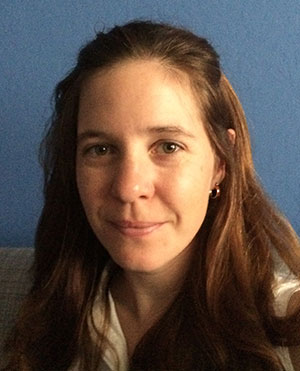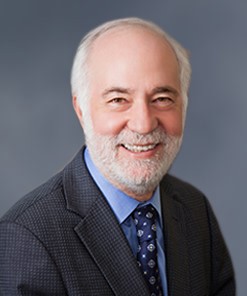Event Date
Ridehailing and Public Transit Partnerships
Event Overview
This webinar draws on three interrelated studies exploring how ridehailing and other shared-use mobility services are impacting transportation planning and public transit agencies. Researchers will focus on factors that enable or inhibit the formation of partnerships between transit agencies and ridehailing companies such as Uber and Lyft. They will discuss support for partnerships from within the agency and from the public, the nuances of rules and regulations, and the role of policy champions in the implementation of these partnerships. Related work detailing the views of transportation planners on ridehailing and the role of partnerships as a potential means to achieve beneficial outcomes as these services become more prevalent will also be presented. In addition, a case study based on survey data collected from residents about the planned launch of a partnership involving shared-use mobility options to access regional rail will provide a deeper look into these partnerships.
This research was also made possible through funding received by the UC Institute of Transportation Studies from the State of California via the Public Transportation Account and the Road Repair and Accountability Act of 2017 (Senate Bill 1).
Speakers
 Dr. Susie Pike is a Professional Researcher at the University of California, Davis. She works at the intersections of environmental policy, travel behavior and sustainable transportation. Dr. Pike's doctoral work focused on social influence in transportation mode choice as a potential tool for sustainable transportation programs. She currently studies the adoption of on-demand ridehailing services and the impacts of these services on the use of other modes of transportation. Her recent research has covered stakeholder perspectives on policies that would increase the use of pooled on-demand service. In another study she investigates the potential for a program aimed at improving access to a commuter rail station, and possible impacts to this program as well as other changes in travel behavior resulting from COVID-19.
Dr. Susie Pike is a Professional Researcher at the University of California, Davis. She works at the intersections of environmental policy, travel behavior and sustainable transportation. Dr. Pike's doctoral work focused on social influence in transportation mode choice as a potential tool for sustainable transportation programs. She currently studies the adoption of on-demand ridehailing services and the impacts of these services on the use of other modes of transportation. Her recent research has covered stakeholder perspectives on policies that would increase the use of pooled on-demand service. In another study she investigates the potential for a program aimed at improving access to a commuter rail station, and possible impacts to this program as well as other changes in travel behavior resulting from COVID-19.
 Sara Kazemian is a PhD Candidate in the Department of Political Science at the University of California, Davis, where she examines the political consequences income inequality. Sara works with Dr. Pike and the UC Davis Policy Institute for Energy, Environment, and the Economy to understand the role of policy entrepreneurship on the adoption of transit innovations. Currently, Sara and Dr. Pike are conducting a survey to assess the effects of Covid-19 on transit agencies.
Sara Kazemian is a PhD Candidate in the Department of Political Science at the University of California, Davis, where she examines the political consequences income inequality. Sara works with Dr. Pike and the UC Davis Policy Institute for Energy, Environment, and the Economy to understand the role of policy entrepreneurship on the adoption of transit innovations. Currently, Sara and Dr. Pike are conducting a survey to assess the effects of Covid-19 on transit agencies.
Guest Respondent
Christy Wegener is the Planning Director for the SamTrans bus system in San Mateo County, California, where she oversees the short- and long-range planning efforts as well as the operations planning and scheduling for the fixed route service. Prior to joining SamTrans, she worked for the Wheels bus system in Livermore and the Sacramento Regional Transit District in Sacramento, California, and spent a number of years at the Connector bus system in Fairfax County, Virginia. Her work in Livermore contributed to the Wheels bus system achieving top transit honors in California (2018, 2019) and Nationally (2020) with a major system redesign that led to increased ridership, as well as an innovative pilot with transportation network companies in Dublin, California. She holds a master’s in public policy and a bachelor’s in psychology and sociology, and is a graduate of the American Public Transportation Association’s Leadership APTA program.
Moderator
 Dr. Daniel Sperling is Distinguished Blue Planet Prize Professor of Civil Engineering and Environmental Science and Policy, founding Director of the Institute of Transportation Studies, and founding chair of the Policy Institute for Energy, Environment, and Economy at the University of California, Davis. He was Interim Director of the UC Davis Energy Efficiency Center from 2008-10, and the UC Davis Energy Institute from 2013-15. Since February 2007, Dr. Sperling has been appointed to the California Air Resources Board. In this position he oversees policies and regulations on climate change, low carbon fuels and vehicles, and sustainable cities. In 2013, he served as Chair of the California Fuel Cell Partnership, and in 2015 as Chair of the Transportation Research Board (National Academies). Dr. Sperling is recognized as a leading international expert on transportation technology assessment, energy and environmental aspects of transportation, and transportation policy.
Dr. Daniel Sperling is Distinguished Blue Planet Prize Professor of Civil Engineering and Environmental Science and Policy, founding Director of the Institute of Transportation Studies, and founding chair of the Policy Institute for Energy, Environment, and Economy at the University of California, Davis. He was Interim Director of the UC Davis Energy Efficiency Center from 2008-10, and the UC Davis Energy Institute from 2013-15. Since February 2007, Dr. Sperling has been appointed to the California Air Resources Board. In this position he oversees policies and regulations on climate change, low carbon fuels and vehicles, and sustainable cities. In 2013, he served as Chair of the California Fuel Cell Partnership, and in 2015 as Chair of the Transportation Research Board (National Academies). Dr. Sperling is recognized as a leading international expert on transportation technology assessment, energy and environmental aspects of transportation, and transportation policy.
